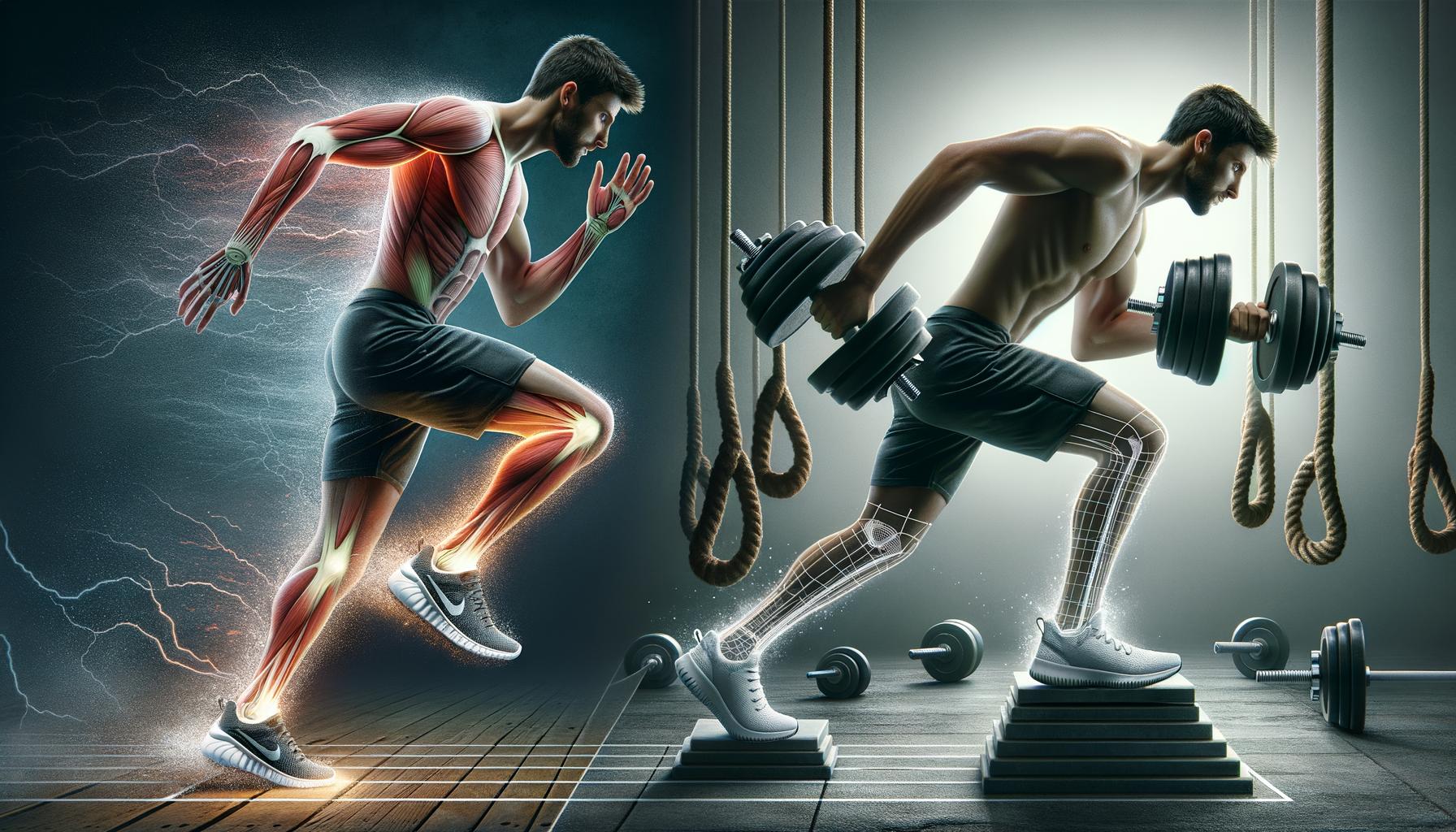· fitness · 14 min read
Understanding Hydration in Fitness: Beyond Dehydration
Explore the vital role of hydration in fitness, from enhancing performance and recovery to preventing injuries, and learn effective hydration strategies.

In This Post
The Fact Why Should I Care How To Put In Action Start Tomorrow Guide How does it effect my ability to focus How does it impact my daily life How does it help me make friends How does it help me manage stress How does it effect my mood Summary: Remember Refresher Checklist The Full Research Article CitationsPrint Out The Tomorrow Checklist!
Sign up for our newsletter and receive a copy today, so that, you can start tomorrow! Or the next day, or the day after that. I forget everything and starting things is hard at least for me so these checklists are godsend.
Print Out The Remember Refresher Checklist!
Sign up for our newsletter and download your own copy of the Remember Refresher Checklist, so that, you can easily put it on your fridge and help you stay on target towards your WHY. Every little bit helps.
The Crucial Role of Hydration in Fitness
When it comes to achieving peak physical performance and ensuring effective recovery, the importance of hydration cannot be overstated. As simple as it may seem, maintaining optimal levels of water intake plays a crucial role in various aspects of fitness. It’s not just about preventing dehydration; hydration affects our muscles, joints, and overall bodily functions in ways that are often overlooked.
The Impact of Proper Hydration:
- Enhances physical performance: Adequate hydration contributes to sustained strength, power, and endurance.
- Promotes muscle recovery: Water is key in transporting nutrients essential for muscle repair.
- Prevents injuries: Proper hydration helps maintain joint lubrication, reducing the risk of strains and sprains.
Why is Hydration Overlooked?
Despite its importance, hydration is frequently ignored by both novice and experienced athletes. Here are a few reasons why:
- Misunderstanding of needs: Many people gauge their hydration by their thirst, which isn’t always a reliable indicator.
- Complexity of managing intake: Finding the right balance of water and electrolytes can seem daunting.
- Underestimated impact: The broader benefits of hydration, beyond preventing heatstroke or dehydration, are often not fully appreciated.
Essential Hydration Checklist for Athletes:
- Monitor your urine color as a quick hydration check; aim for light yellow.
- Include electrolytes in your hydration plan, especially during long or intense workouts.
- Adjust your water intake based on activity level, environmental conditions, and individual needs.
- Listen to your body; thirst is an obvious sign of dehydration, but fatigue and dizziness are also key indicators.
- Hydrate consistently throughout the day, not just during workouts.
Overview of Hydration Benefits Beyond Preventing Dehydration
Moving beyond the common understanding of hydration as merely a deterrent against dehydration reveals a plethora of benefits critical for anyone engaged in fitness activities. Hydration is a cornerstone of physical health that supports the body in a multitude of ways, contributing significantly to:
- Injury prevention: Keeping the joints lubricated minimizes the risk of injuries during physical activities.
- Efficient nutrient transport: Adequate hydration ensures the effective transport of nutrients and oxygen to cells, aiding in performance and recovery.
- Optimized blood volume and pressure: Proper hydration levels help maintain blood volume, ensuring our cardiovascular systems function efficiently during exercise.
In simple terms, drinking enough water is not just about avoiding the dangers of dehydration. It’s about optimizing your body’s overall function and performance during exercise and in your day-to-day life. Understanding the multifaceted role of water in maintaining fitness is the first step towards achieving your physical health goals.
The Science of Hydration and Fitness
How Hydration Powers Physical Performance
Hydration plays a crucial role in physical performance. While most people understand the dangers of dehydration, few appreciate the full extent of hydration’s impact on athletic performance.
Blood Volume and Pressure: Water intake directly influences blood volume and pressure. Adequate hydration ensures that the body maintains a proper blood volume, allowing the heart to pump blood more efficiently. This efficiency is vital for athletes because it means that oxygen and nutrients carried by the blood can be delivered more effectively to muscles during physical activity.
Enhanced Nutrient and Oxygen Delivery: Proper hydration levels enable efficient nutrient transport and oxygen delivery to muscle tissues. During exercise, your muscles require more oxygen and nutrients to maintain performance. If you’re well-hydrated, your blood can carry these essential components to your muscles more effectively, leading to improved endurance, strength, and overall performance.
- Drink water regularly throughout the day, not just before or after workouts.
- Monitor your urine color for signs of adequate hydration (pale yellow is ideal).
- Incorporate water-rich foods into your diet, such as fruits and vegetables.
The Importance of Joint Lubrication for Injury Prevention
Water isn’t just vital for muscle performance; it’s also crucial for keeping your joints healthy. Joints are the bridges between bones, enabling all the movements you make. Keeping these joints well-lubricated is a key step in preventing injuries.
Role of Water in Cushioning Joints: Joint lubrication is significantly dependent on hydration. Water helps to maintain the elasticity of the joint tissues and the viscosity of the synovial fluid that cushions joints. This fluid reduces friction between cartilage and other joint surfaces, minimizing wear and tear. Without sufficient hydration, your joints could be more susceptible to damage, leading to pain and injuries that could sideline you from your fitness activities.
By understanding the multi-faceted role water plays in both enhancing physical performance and preventing injuries through joint lubrication, athletes can appreciate the deeper significance of staying hydrated beyond just avoiding dehydration. The benefits of hydration permeate every level of physical fitness, from the cellular level of nutrient transport and oxygen delivery to the macro level of joint health and overall athletic performance.
Hydration Strategies for Optimal Performance
Identifying Individual Hydration Needs
Everyone’s hydration requirements are not the same. Several factors can influence how much water you need to stay hydrated during your fitness journey. These include:
- Climate: Hot or humid weather can make you sweat more, increasing your water needs.
- Exercise intensity and duration: Longer and more intense workouts require more water.
- Body size: Larger bodies may require more water.
- Sweat rate: Some people sweat more than others, even in similar conditions.
To understand your unique hydration needs, start by paying attention to your body. Thirst is a late indicator of dehydration, so waiting until you’re thirsty to drink water can be a mistake. Instead, monitor your urine color. A pale, straw-like color means you’re properly hydrated, while a dark yellow indicates you need more fluids.
Effective Hydration Techniques for Athletes
Hydration is not just about drinking water; it’s about when and how you hydrate. Here are some techniques for ensuring optimal hydration for athletic performance:
Pre-exercise hydration: Begin hydrating at least two to three hours before exercising. This helps start your activity well-hydrated, without the discomfort of having too much water in your stomach.
During exercise: Drink small amounts of water regularly, ideally every 15 to 20 minutes. Sports drinks with electrolytes can be beneficial for long-duration or high-intensity workouts to replace lost salts and maintain fluid balance.
Post-exercise: Rehydrate by drinking water or sports drinks to replace fluids lost through sweat. This is crucial for recovery and your next performance.
Remember, your hydration plan should also include:
- Electrolytes: These are essential for hydration, as they help retain fluids and maintain nerve and muscle function. Sodium, potassium, magnesium, and calcium are important electrolytes lost through sweat.
Here’s a checklist to keep in mind for your hydration plan:
- Monitor urine color for hydration level.
- Start hydrating 2-3 hours before exercise.
- Drink regularly during exercise, every 15-20 minutes.
- Include electrolytes in your hydration, especially for long or intense workouts.
- Rehydrate after exercise with water or sports drinks.
Hydration is a key component of athletic performance, recovery, and overall health. By identifying your personal hydration needs and applying effective hydration techniques, you can ensure that your body has the fluids it needs for optimal performance and injury prevention. Remember, staying hydrated goes beyond simply preventing dehydration; it enhances performance, supports muscle recovery, and contributes to joint lubrication.
Recognizing Dehydration and Overhydration
Hydration plays a critical role in maintaining peak athletic performance. However, the balance is delicate, and slipping into dehydration or overhydration can have serious effects. Understanding the signs, risks, and how to maintain this balance is vital for any athlete.
Signs and Symptoms of Dehydration in Athletes
Dehydration occurs when your body loses more fluids than it takes in. For athletes, even a slight level of dehydration can lead to a significant reduction in performance. Recognizing the early signs is crucial for prompt action. Symptoms of dehydration include:
- Thirst: While obvious, it’s a clear signal your body needs more fluids.
- Fatigue: Feeling unusually tired during physical activities could indicate dehydration.
- Reduced urine output: Lesser than usual, coupled with a darker color.
- Dizziness: A sign of many conditions, but in athletes, often linked to dehydration.
- Dry mouth and skin: Less sweating than usual despite strenuous activity.
- Faster heartbeat and breathing: The body’s effort to maintain blood pressure and oxygen transport.
The Risks of Overhydration: Understanding Hyponatremia
Contrarily, overhydration, or hyponatremia, occurs when there is too much water in the body, diluting the sodium levels. It’s less common but can be equally dangerous, leading to:
- Nausea and vomiting: The body’s attempt to rid itself of the excess water.
- Headache and confusion: Resulting from the swelling of cells, including brain cells.
- Seizures: In severe cases, due to the imbalance of electrolytes.
- Coma and potentially fatal outcomes: In extreme overhydration cases.
Balancing Hydration: How to Avoid Extremes
Maintaining the right hydration balance is paramount. Here’s a checklist to help athletes avoid the extremes of dehydration and overhydration:
- Monitor fluid intake: Ensure it matches your intensity and duration of exercise, and environmental conditions.
- Weigh yourself before and after exercise: A drop in weight can indicate how much fluid you’ve lost through sweat.
- Use thirst as a guide but don’t rely solely on it: Plan hydration breaks, especially during long sessions.
- Include electrolytes during longer or more intense sessions: They can help avoid hyponatremia by ensuring fluids are properly utilized by the body.
- Listen to your body: Recognize the signs of both dehydration and overhydration.
The key to achieving hydration balance is not just about how much and when you drink, but also what you drink. Water is essential, but during extensive exercise, sports drinks with electrolytes can prevent both dehydration and overhydration. The final goal is to individualize your hydration strategy, considering factors like sweat rate, the sport’s intensity, duration, and the climate to enhance performance and recovery while avoiding injury.
By understanding the risks associated with both dehydration and overhydration, athletes can take informed steps to ensure they’re properly hydrated, achieving the optimal balance for peak performance and health.
FAQs (Based on “People Also Ask” Section from Google)
How much water should I drink for optimal fitness performance?
The amount of water necessary for optimal fitness performance can vary widely among individuals due to factors like body size, the intensity of the workout, and environmental conditions. However, a general guideline suggests that men should aim for about 3.7 liters (125 ounces) and women for about 2.7 liters (91 ounces) of water per day from all food and beverages. For athletes, these needs may increase, especially to compensate for fluid loss through sweating during exercise.
- Before Exercise: Drink 17 to 20 ounces of water 2 to 3 hours before your workout.
- During Exercise: Aim for 7 to 10 ounces every 10 to 20 minutes of exercise.
- After Exercise: Drink 16 to 24 ounces of water for every pound of body weight lost during the workout.
Checklist for Daily Water Intake and Fitness:
- Follow the general daily water intake guidelines.
- Adjust according to your personal hydration needs and workout intensity.
- Continuously sip on water throughout the day, not just during workouts.
- Increase your intake on hot days or when exercising longer.
Can hydration affect muscle recovery?
Yes, hydration plays a crucial role in muscle recovery. Water is vital for transporting nutrients to your muscles, which is essential for repairing and rebuilding muscle fibers after exercise. Adequate hydration also helps flush out metabolic waste products, such as lactic acid, that can accumulate in muscles during intense workouts and lead to soreness.
During recovery, staying well-hydrated helps maintain the optimal balance of electrolytes, such as sodium and potassium, which are crucial for muscle function and preventing cramps. Moreover, proper fluid balance is key for reducing inflammation and speeding up recovery times after a workout.
What are the best fluids for staying hydrated during exercise?
While water is often sufficient for most workouts, exercises that are particularly long (more than 60 minutes) or occur in hot and humid conditions may warrant the use of sports drinks. These beverages are designed to not only replenish fluids but also provide carbohydrates for energy and electrolytes to replace what is lost through sweat.
Effective Fluids for Hydration During Exercise:
- Water: The most accessible and effective way to stay hydrated.
- Sports Drinks: Useful for long-duration exercises or workouts in high temperatures.
- Coconut Water: A natural alternative to sports drinks, offering electrolytes and a small amount of sugar.
- Electrolyte-Enhanced Water: Helpful for replenishing electrolytes lost during high-intensity or extended periods of sweating.
Remember, the goal is to maintain hydration without reaching the point of overhydration. Listening to your body’s thirst signals and adjusting your fluid intake based on the duration and intensity of your exercise, as well as environmental conditions, will help you stay adequately hydrated and achieve better fitness performance and muscle recovery.
Conclusion
As we wrap up our exploration into the vast importance of hydration in fitness, it’s crucial to reaffirm that staying hydrated goes far beyond merely preventing dehydration. The journey through understanding hydration has highlighted its pivotal role in enhancing performance, optimizing recovery, and safeguarding our health during physical activities.
Summarizing the Importance of Hydration in Fitness Beyond Dehydration
Hydration influences every facet of our physical fitness. By properly managing our water intake and carefully considering the hydration benefits, we unlock the potential for enhanced athletic performance. This is not just about quenching thirst—hydration is fundamentally linked to blood volume and pressure, efficient nutrient transport, and optimal oxygen delivery to the muscles. These elements are critical for pushing ourselves further in our fitness endeavors, whether we are professionals or enthusiasts.
Hydration also plays a critical role in injury prevention. Proper joint lubrication, supported by adequate water intake, protects our bodies against the wear and tear of intense exercises. Furthermore, incorporating electrolytes into our hydration techniques ensures that our body’s chemical balance supports peak performance and health.
For those looking to refine their hydration strategy, here’s a quick checklist to ensure you’re covering the bases for optimal hydration:
- Identify your personal hydration requirements based on your activity level, environment, and body needs.
- Pre-hydrate before engaging in physical activity to prepare your body for the water loss it will experience.
- During exercise, sip on fluids regularly to maintain hydration without overdoing it.
- Post exercise, replenish lost fluids and electrolytes to aid in recovery and prepare for the next challenge.
- Pay attention to the signs of dehydration and overhydration for a balanced approach.
Hydration is a key element in muscle recovery as well. Post-exercise hydration, complemented with nutrients, aids in the repair and rebuilding of muscle tissues, promoting efficient recovery and readiness for the next workout.
Understanding the hydration requirements specific to our bodies and the nature of our physical activities is essential. It ensures that we can perform at our best while minimizing the risks associated with dehydration and overhydration, like hyponatremia.
In sum, effective hydration techniques tailored to individual needs, awareness of hydration’s impact on performance, recovery, and health, and a balanced approach to water intake and fitness can significantly improve your athletic journey. The essence of hydration in fitness transcends the simple act of drinking water—it’s about nurturing our bodies to perform, recover, and thrive in the demanding realm of physical activity.
Relevant External Links
To further enhance your understanding of hydration’s role in fitness, its benefits, and how to manage your water intake effectively, we’ve identified three reputable sources. These resources offer in-depth insights, practical tips, and expert advice to ensure you’re well-hydrated for optimal performance and recovery.
1. American Council on Exercise - Hydration and Physical Activity
The American Council on Exercise (ACE) provides essential hydration tips for athletes that cover a broad spectrum of activities and conditions. From understanding hydration requirements to identifying the signs of adequate hydration, this resource is invaluable. It emphasizes the significant role of water in maintaining blood volume and pressure, ensuring efficient nutrient transport and oxygen delivery to muscles during physical activities.
2. Mayo Clinic - Water: How much should you drink every day?
Mayo Clinic’s guide on daily water intake demystifies the often asked question, “How much water should I drink for optimal fitness performance?” This resource provides a nuanced view that goes beyond the standard eight-glasses-a-day advice. It considers individual hydration requirements impacted by exercise, environment, and health conditions. Understanding your daily water intake needs is crucial for preventing dehydration and supporting athletic performance.
3. Harvard Health Publishing - The Importance of Staying Hydrated
Harvard Health Publishing delves into why hydration matters for everyone, including athletes. It discusses the comprehensive benefits of staying adequately hydrated, such as injury prevention through joint lubrication and enhanced performance and recovery. This article is a must-read for anyone interested in the broader health implications of hydration, including its effect on physical and cognitive functions.
Checklist: Stay Hydrated and Perform at Your Best
- Understand Your Body’s Needs: Consider factors like activity level, environment, and health when determining your hydration requirements.
- Incorporate Electrolytes: For long-duration activities, ensure your hydration techniques include electrolyte replenishment.
- Monitor Hydration Levels: Recognize the signs of dehydration and overhydration. Listen to your body and adjust water intake accordingly.
- Prioritize Pre-Exercise Hydration: Drink water before engaging in physical activities to ensure you’re starting off well-hydrated.
- Stay Consistent with Water Intake: Keep hydration levels optimal throughout the day, not just during and after exercise.
- Consult Professional Resources: Dive into the provided external links for expert advice and research-backed hydration strategies.
By familiarizing yourself with these comprehensive resources and adhering to the checklist, you’ll be equipped to manage your hydration more effectively. Whether it’s enhancing physical performance, accelerating muscle recovery, or preventing injuries, proper hydration paves the way for a healthier, more active lifestyle.





